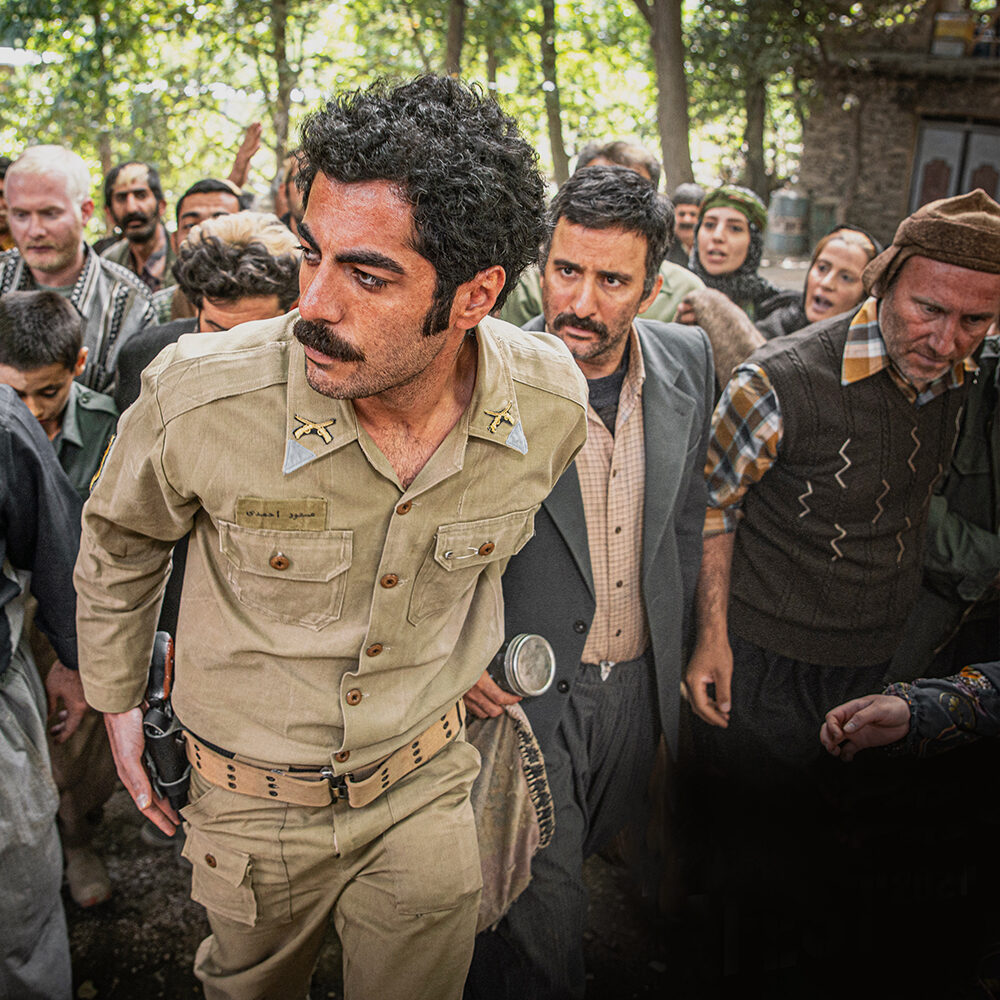NEWS

‘Zalava’: Film Review | TIFF 2021
The devil literally cannot be contained in Arsalan Amiri’s debut feature.
It should be hard to dislike a movie in which one of the first lines of dialogue is “My sheep are possessed!” Unfortunate, then, that the allegorical scare-flick Zalava, Kurdish-Iranian filmmaker Arsalan Amiri’s feature directorial debut, proves so dull and deadening, even at a brief 93 minutes.
Set in 1978, on the cusp of the culture-altering Iranian Revolution, the film follows a gendarmerie sergeant named Masoud (Navid Pourfaraj) who is in his last days policing the superstitious residents of the eponymous village. Masoud has the pierce-you-to-the-core stare of a born skeptic; The X-Files’ Dana Scully would think he was a little much. And he has no time for the purportedly demonic shenanigans that have plagued Zalava for generations.
In the opening scene, these otherworldly doings result in a young woman falling to her death. The villagers insist she was possessed. Masoud thinks otherwise. And even though he’s ready to hightail it out of this remote region, he can’t help engaging with what is, for him, a never-ending freak show.
The main attraction of the moment is a shaman, Amardan (Pouria Rahimi Sam), who has promised to permanently exorcise the devil responsible for Zalava’s troubles. After a portentous display in front of the hysterical villagers, during which he hypes them up with warnings to shoot him should the ritual not go as planned, Amardan emerges from the dark confines of a house with a glass jar in hand. In here, he insists, is the demon, trapped forever. Unless someone lets him out. (That’ll never happen!)
There is, of course, nothing to see in the jar. So the Zalavians’ imaginations, as well as Masoud’s own disbelief, run wild — opposing perspectives all leading inexorably toward doom. Caught in the middle is a female government physician, Maliheh (Hoda Zeinolabedin), who is collecting blood samples from the villagers that show elevated levels of adrenaline. (Many of them also have mottled skin that they take as a sign of something evil at work.) Masoud is additionally sweet on Maliheh, which sets up a tragic climactic confrontation that, if it doesn’t shake his doubts, certainly pulverizes his spirit.
Plenty of films have made the imperceptible terrifying. Yet that’s decidedly not the case here. There’s an off-puttingly overwrought quality to Zalava, as if Amiri and his collaborators are forcing the fear as opposed to letting it emerge more naturally. Setting the story pre-Revolution does little to give the proceedings thematic heft (it’s mere metaphorical window dressing). And Amiri’s press-notes-stated intent to portray, through a genre piece, the memories of his own upbringing as an Iranian-Kurdish minority sadly proves admirable in conception and featherweight in execution.
Much of the heavy lifting in Zalava is done by Ramin Kousha’s insistent score, which is overbearingly wall-to-wall, the furthest thing from fear-inducing. And while cinematographer Mohammad Rasouli captures a few pretty images — some Kiarostami-like long shots of cars driving along windy mountain roads or the shadowy suggestiveness of certain nighttime sequences — their individual atmospherics don’t add up to anything that consistently gets under the skin.
